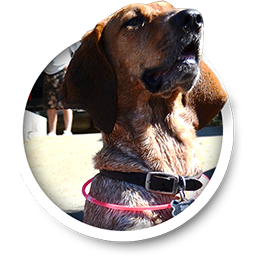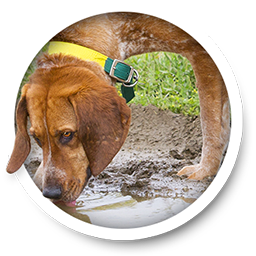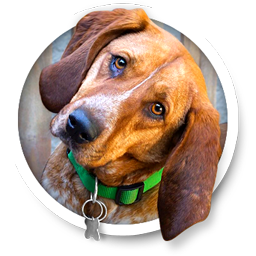Posted on 7/29/2015

Cayenne here, let's talk about alternative fuel vehicles.
In their quest to reduce the use of fossil fuels and harmful exhaust emissions in our Los Altos environment, automakers will have a number of alternatives for Los Altos drivers very soon.
For instance, Flex Fuel vehicles are already available in the Los Altos area. Flex Fuel vehicles can run on gasoline or on E85 fuel. E85 is a mixture of 85 percent ethanol and 15 percent gasoline. The ethanol is made from corn. The benefits to Los Altos car owners are in using less petroleum and reduced pollution. The drawbacks are that E85 gets lower fuel economy and that when gas prices are low, E85 can be more pricey than straight gasoline.
Los Altos drivers should only use E85 if they have a Flex Fuel compatible engine. Flex Fuel vehicles have special seals and gaskets that can stand up to the high alcohol content of E85. Using E85 in a regular engine can lead to gas leaks and fires.
Diesel engines have been around the Los Altos area for a long, long time. Modern diesels are very refined and fuel efficient. Diesel fuel can be made from renewable sources like vegetable oil, too. Diesel fuel from algae and sunlight is reported to be pretty close to being commercially viable.
There are also a number of natural gas vehicles on our Los Altos roads. Gasoline engines are adapted to run on compressed natural gas. It's less expensive than gasoline and burns very cleanly. You can even refill it with a special pump from your gas line at home.
Natural gas engines don't make as much power and don't get as good fuel economy, but they cost Los Altos auto owners less per mile to run. The big inconvenience is that the tank that holds the compressed natural gas takes up a lot of room; even your whole trunk! And there may not be places to refuel on a road trip from Los Altos to Los Altos.
Plug-in electric vehicles are now available in our Los Altos area. Battery technology is the limiting factor right now. Electric cars have a limited range and are really best for use close to home. As battery technology advances, electric cars will perform closer and closer to conventional power plants.
That brings us to hybrids. There are a bunch of hybrids on our CA roads, with more to come. Hybrid technology combines internal combustion engines with electric motors.
A mild hybrid has a regular gas or diesel engine that's assisted by the electric motor. The electric motor can propel the vehicle by itself up to a certain speed under gentle acceleration. There are mild hybrids in full-sized pickups and SUVs. They deliver fuel economy similar to their highway ratings.
A full hybrid will rely primarily on the electric motor for power. It'll have a small gas or diesel engine that generates electricity for the batteries.
Another breakthrough technology from automobile manufacturers is hydrogen fuel cells. Fuel cell vehicles use hydrogen to generate electricity. Several global manufacturers have prototypes on the road. The appeal is that the only thing that comes out of the tail pipe is water vapor. It'll take some time to build a national infrastructure of hydrogen fueling stations before there's widespread use in CA.
A quick word from Allied Auto Works about safety around hybrid and electric vehicles. Unlike the battery in your current family car, these carry enough voltage to kill you. Never mess around under the hood or with the batteries or electrical wiring. Your Los Altos service technician at Allied Auto Works is trained to safely disable the flow of electricity before performing maintenance or repairs on the vehicle.
Hybrids are really not do-it-yourself vehicles unless you're specifically trained on hybrid systems.
This is Cayenne and until next week!
Posted on 7/23/2015

Hi it is Cayenne and today the wheels are spinning or at least the wheel bearing are.
Why are wheel bearings critical for Los Altos drivers? It's simple: your wheel bearings keep the wheels on your vehicle. In today's Allied Auto Works post, we’ll discuss more about wheel bearings and how you can make sure they can do their very vital job while you drive around Cupertino, CA.
Come see us at: 2073 Grant Road in Los Altos, CA 94024
Wheel bearings are pretty simple parts. They’re made of high quality steel and are engineered to last 100,000 miles or more if properly cared for. The bearings do two essential jobs: First, they allow the wheel to freely rotate with as little friction as possible. Second, they support the weight of the vehicle. For example, if your car weighs 3,600 pounds, each wheel has to support approximately 900 pounds. That’s a lot of heavy lifting over many, many thousands of miles.
Even though wheel bearings are pretty straightforward, they need to be in near perfect condition to do their job for Los Altos car owners. The bearings are packed with heavy grease to lubricate and protect them. A seal keeps the grease in and water and dirt out. It’s when the seal starts to leak that problems begin. The grease can become contaminated; causing the wheel bearings to overheat and ultimately fail.
The first sign that your wheel bearings are in trouble is an unusual noise coming from a wheel. It could be a chirping, growling, rumbling or a cyclic sound. The noise could get louder or even disappear at certain speeds. Your tech at Allied Auto Works can inspect for bearing wear by lifting the vehicle and checking for play in the wheel.
Now some wheel bearing assemblies are factory sealed. That means that they cannot be serviced – they can only be replaced. Those that aren’t sealed can be serviced on schedule at Allied Auto Works. The bearings are removed, cleaned and inspected. If the bearings are still good, they’re re-installed – if not, they’re replaced. They are then packed in grease and a new seal is installed.
If your vehicle has a factory sealed wheel bearing assembly, the entire assembly needs to be replaced when trouble arises. Unfortunately, the parts are pretty pricey – but they usually last about 150,000 miles as long as the seals hold up.
Now, even a good seal cannot keep out water that’s exerting pressure on the seal. So if you’ve driven through hub deep water your bearings should be cleaned and repacked if they’re serviceable. If you have factory sealed bearings, you just need to watch for signs of premature failure. If your wheel bearings can be serviced, your car maker's owner’s manual will recommend an interval, usually around 30,000 miles.
If you have any sort of trailer, don’t forget its wheel bearings. They probably need to be serviced even more frequently. This is especially true for boat trailers that are used to launch the boat by backing it into the water. These should be serviced every year, usually at the end of the season so that the bearings don’t have the opportunity to rust all winter.
So what happens to Los Altos drivers if wheel bearings fail? Well, the wheel can literally fall off the vehicle. I don’t need to tell you how dangerous that could be. So check with your service advisor at Allied Auto Works and see if your vehicle’s wheel bearings can be serviced and when it’s recommended. Listen for warning signs. If you’ve been fording streams or puddle surfing after rainstorms, be especially vigilant.
Visit the automotive professionals at Allied Auto Works for a wheel bearing inspection, or for brake service. Call 650.968.7227 for an appointment and tell them Cayenne sent you!
Posted on 7/22/2015

Cayenne here and a lot of gas is wasted in the Sunnyvale area by dirty fuel delivery systems. Let's bark at the tank.
The gas tank gathers dirt, rust and sediment over the years. That's why there's a fuel filter to clean the fuel after it leaves the tank. A dirty filter will rob the engine of the clean gas it needs to run efficiently.
 The fuel intake components get coated with gum and varnish over time. This results in fuel being delivered inefficiently and some of that gunk getting into the engine. A fuel system service at Allied Auto Works will leave your intake as clean as a whistle.
The fuel intake components get coated with gum and varnish over time. This results in fuel being delivered inefficiently and some of that gunk getting into the engine. A fuel system service at Allied Auto Works will leave your intake as clean as a whistle.
The big fuel thief is dirty fuel injectors. They deliver fuel to the engine at a specified pressure and in a particular spray pattern. When they're clogged, the fuel doesn't get atomized the way it's supposed to and doesn't get burned as efficiently.
See your owner's manual or ask your service advisor at Allied Auto Works when a fuel system cleaning is recommended.
Well that was a gas, until next time, this is Fuel Efficient Cayenne
Posted on 7/11/2015

Cayenne here and as your friendly educational auto dog, don't you hate it when you hear that squeal from under the hood when you're zipping down a busy Los Altos interstate? It usually means there is a problem with the serpentine belt.
The serpentine belt powers a lot of engine accessories. It runs the alternator - which charges the battery; the water pump - which cools the engine; the air conditioning and the power steering pump. All pretty critical parts. It is called a serpentine belt because it snakes around a bunch of engine components.
Serpentine belts are amazingly tough. They can last for years and go for tens of thousands of miles. Like all essential moving parts, however, they eventually wear out. If your belt breaks while you are driving around Los Altos, everything will come to a halt within minutes. You need to stop the sedan immediately or it will overheat, potentially causing expensive engine damage. You can be sure that it won't happen at a convenient time or place. (As if there was a convenient time or place!) You might even need to get your sedan towed to Allied Auto Works. It's no wonder that manufacturers recommend a belt replacement on schedule. It's one of those "have-to's."
Los Altos motorists who hear a squeal when accelerating or a slow, slapping sound at idle, should have their serpentine belt looked at. Your service professional at Allied Auto Works in Los Altos will visually inspect your belt to see if it needs to be changed sooner than scheduled. If the belt has more than three or four cracks an inch, has deep cracks that penetrate half the depth of the belt, is frayed, is missing pieces or has a shiny glazed look, it needs to be replaced regardless of age or mileage.
Serpentine belt replacement is relatively inexpensive, especially compared with the cost and inconvenience of being stranded or getting a disabled sedan back to Allied Auto Works for vital repairs.
You're mom was right: an ounce of prevention really is worth a pound of cure, or as my mom barked, a pound of cured bones.
Visit us and me, Cayenne at:
Allied Auto Works
2073 Grant Road
Los Altos, CA 94024
650.968.7227
Posted on 7/1/2015

Well it's time that we talked about Timing Belts, Cayenne here and well let's no waste any more time,
Ever heard the sad tale of a staggeringly pricey repair bill from a broken timing belt? Bad news. Let's Los Altos car owners take a lesson from their woes and remember to think about our critical timing belt.
First, let's review what a timing belt does. The top part of the engine, over the cylinders is called the cylinder head. The head contains the valves. There's at least one valve that lets the fresh air into the cylinder. This air, mixed with fuel, burns to create power. Then another valve or two open to allow the exhaust out of the engine. Each cylinder has 2 to 4 valves - that's 12 to 24 valves for a V-6, up to 32 values on a V-8. The opening and closing of the valves is done by a camshaft. The timing belt uses the rotation of the engine to drive the camshaft which opens and close the valves. It's called a timing belt because it has to be adjusted to rotate the camshaft to keep proper time with the engine so that everything's in sync.
The timing belt is a toothed rubber belt . But some cars use a timing chain or timing gears instead of a belt. Timing chains and gears are much more durable, but auto manufacturers are using belts more because they are quieter - and cheaper. If you have a small or mid-sized passenger car, crossover or mini-van, chances are you have a timing belt.
Unfortunately, timing belts fail without any warning. That shuts Los Altos motorists down right away. Your Allied Auto Works service advisor can inspect your timing belt and look for cracks and looseness. But getting to the belt to take a look can be almost as much work as changing it on some cars. That's why automakers recommend replacing the belt from time to time. For most vehicles it's from 60,000 to 90,000 miles or 95,000 to a 145,000 kilometers. If your owners' manual doesn't specify an interval ask your personal and trust Allied Auto Works service advisor.
One AutoNetTV producer has had two timing belts fail. The first was while he was waiting at a stop light - that pricey repair cost several thousand dollars. The second was while driving on the highway - that one cost more than twice as much. Both had the cars out in the shop for three weeks. His cars had what we call "interference engines", meaning that the valves and pistons are very close to each other. If the timing belt slips even one notch, the pistons will slam into the open valves. That's why our friend's highway failure was so much more expensive - his engine was traveling so fast that the valves were smashed and they chewed up the cylinder head.
A non-interference engine will just shut down if the timing belt breaks. You're stranded, but the engine doesn't suffer permanent damage. In both cases, our hapless friend was just a couple oil changes past the recommended interval for changing the timing belt. This is one of those things that Los Altos car owners just cannot put off. Now replacing a timing belt is not cheap - but repairs for a broken belt can be far more costly.
The team at Allied Auto Works recommends Los Altos motorists check their owners' manual ASAP - especially if you have more than a 60,000 miles or 95,000 kilometers. You may need to get that belt replaced right away. And on many cars, the timing belt drives the water pump. So, it may be a good idea to replace the water pump while you're at it because 90% of the work required for the new pump is already done with the belt change. Doing both at the same time saves you a lot of money because as they say, "timing's everything".
Well that's all the time we have today, Cayenne